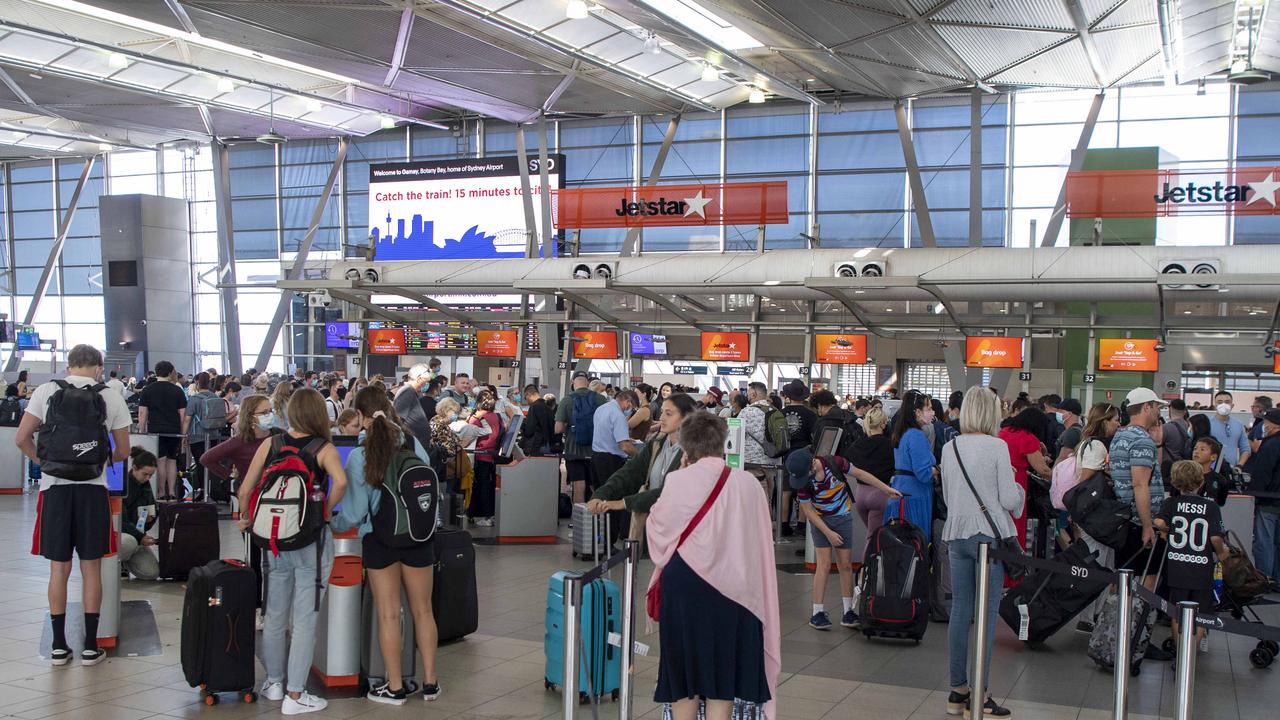One of the few remaining Covid zero holdouts will begin to ease restrictions from April
Amid a surge in cases, one of the few places that was still chasing Covid zero will now ease restrictions as its leader admits “tolerance for restrictions is fading”.
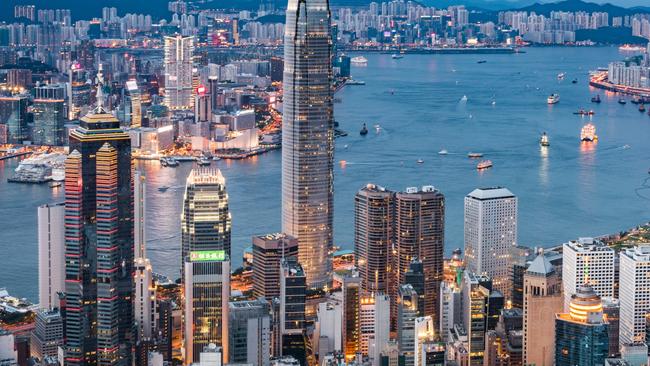
Travel News
Don't miss out on the headlines from Travel News. Followed categories will be added to My News.
One of the world’s last remaining Covid-zero bastions appears to be crumbling in the face of Omicron.
Hong Kong will ease restrictions and cut quarantine after the variant swept through the Chinese territory.
From April 1, Hong Kong residents who are fully vaccinated and Covid negative will once again be able to enter on flights from Australia as well as a handful of other countries that had been deemed high risk but now arguably are lower risk than Hong Kong itself.
Hong Kong’s apparent turnaround could be the sign of things to come on the Chinese mainland which is still adhering – for now – to a “dynamic Covid-19” policy of snap lockdowns, mass testing and shuttered borders.
But even those measures may now be failing.
Last week, Hong Kong’s regional leader Carrie Lam said she suspected “people’s tolerance (was) fading” for life in and out of lockdown and there was a desire to return to “normal life”.
Another factor could be the more than 100,000 residents who have left Hong Kong in just the past two months as the restrictions continued.
Stream the latest news on COVID-19 with Flash. 25+ news channels in 1 place. New to Flash? Try 1 month free. Offer ends 31 October, 2022 >
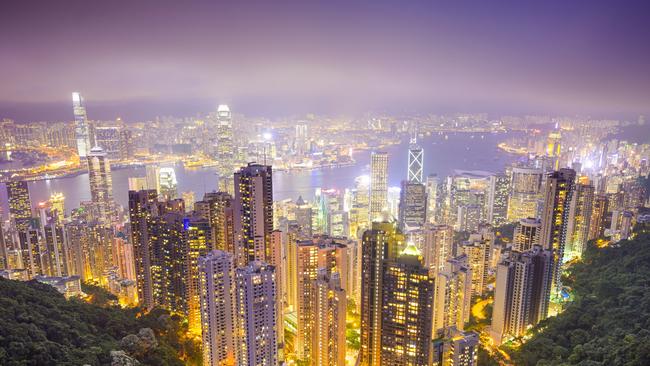
Australia flights to Hong Kong back on
On Monday, Ms Lam announced flight restrictions would be eased for Australia and eight other countries including the UK, US, Canada and the Philippines.
Flights from all nine countries were banned earlier this year as Omicron spread globally.
But the so-called “circuit breaker” ban on flights was no longer necessary, said Ms Lam, as the situation in the nine nations was now “no worse” than in Hong Kong.
Returning Hong Kong residents will also only have to quarantine for seven days, down from in some cases three weeks.
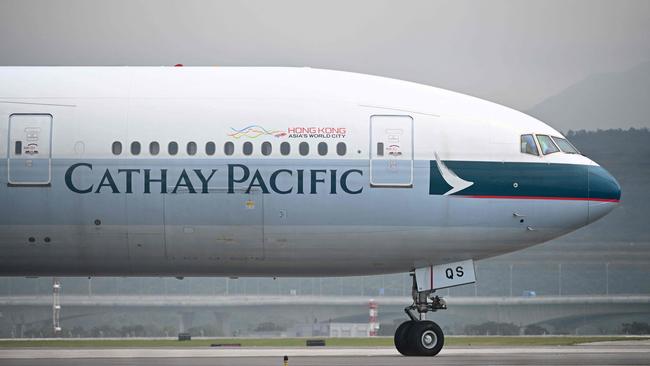
Covid-19 cases in Hong Kong were at a relative trickle through much of the pandemic – sometimes around 100 cases a day but often far less or even none at all. But that all changed in early February when new infections began to skyrocket.
On March 4, 73,000 new cases were recorded in a single day. That figure has gradually dropped but the territory of 7.5 million is now recording around 20,000 cases every 24 hours.
From barely any Covid-19 deaths, Hong Kong now sees around 300 a day.
So many deaths are occurring, in recent weeks workers have been seen placing bodies of coronavirus victims into refrigerated shipping containers in Hong Kong as morgues run out of space.
The death toll, in part due to lower vaccination rates among the elderly, is far more than Australia where fatalities peaked at around 80 a day in late January and are now around 20.
It’s not just rules on international travellers that are easing in Hong Kong. Social restrictions and mask wearing rules will also become less onerous from April.
Gyms, beauty salons and sporting venues will be allowed to reopen. Restaurants will also be allowed to open during the evening. Eventually bars too will be permitted to open their doors.
Schools will also go back to face-to-face learning on April 19.
A plan to compulsorily test every resident for Covid-19 has been scrapped.
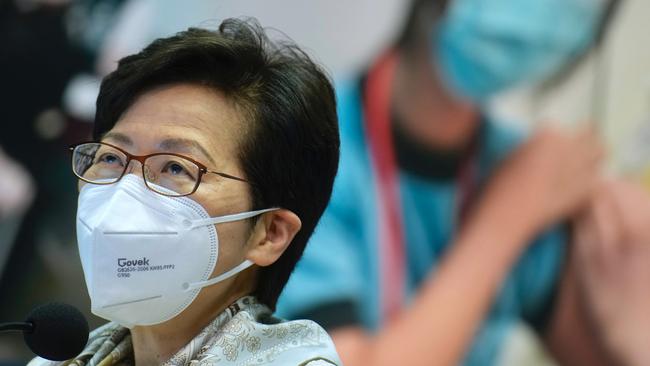
‘Tolerance of Covid restrictions fading’
“As long as the trend is coming down in four weeks’ time we should be able to resume normal life”, Ms Lam said on Monday.
Last week, she laid the groundwork for moving on from the toughest restrictions by acknowledging that Hong Kongers were, essentially, over it. And not just residents but the big corporate giants who were attracted to the city.
“I have a very strong feeling that people’s tolerance are fading.
“I have a (feeling) that some of our financial institutions are losing patience about this sort of isolated status of Hong Kong.
“We have to make preparations for a relaunch of our economy,” she said.
The territory has been caught in a Covid bind
It was under pressure from Beijing to follow its Covid-zero strategy. But by doing so it was further compromising Hong Kong’s position as a global financial and talent hub which had already been weakened by the implementation of a new national security law.
In February, a net 70,000 people left Hong Kong with 54,000 leaving in March so far.
Talking to The Guardian, University of Sydney epidemiologist Alexandra Martiniuk said Covid-zero was difficult to reintroduce once cases had soared.
“Keeping public health protections in place but letting go of the concept of Covid-zero does sound like where Hong Kong is going.”
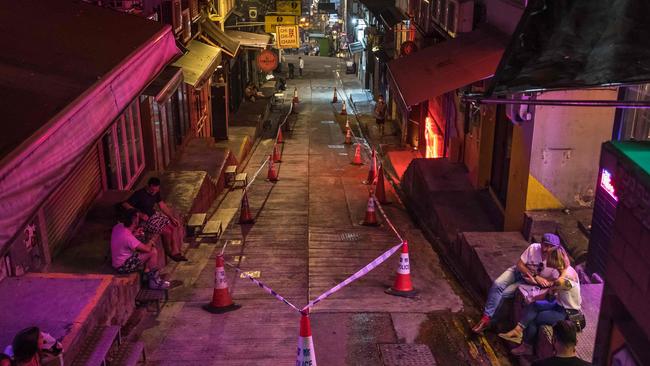
What Hong Kong’s change could mean for China
However, there is still no indication of when Hong Kong will open its border to mainland China itself.
And that’s because Beijing is still – just – on board the Covid-zero bus.
How Hong Kong fares could be a test for China to see how it might find a way to live with the virus.
Since 2020, China has largely been closed to the outside world due to its tough pandemic restrictions. Oppressive snap lockdowns and mass testing have become a feature in cities where outbreaks occur and borders have been largely closed.
The Chinese Government has congratulated itself for its handling of the disease and the fewer deaths that have occurred compared to many places overseas.
But it’s now seeing an uptick in cases which is reaching the heights of the early pandemic.
Whereas previously a few neighbourhoods might be locked down, now its entire provinces with millions of people. And there are doubts about how sustainable that is.
There are signs people are tiring of the quick and harsh measures which are also impacting economic output.
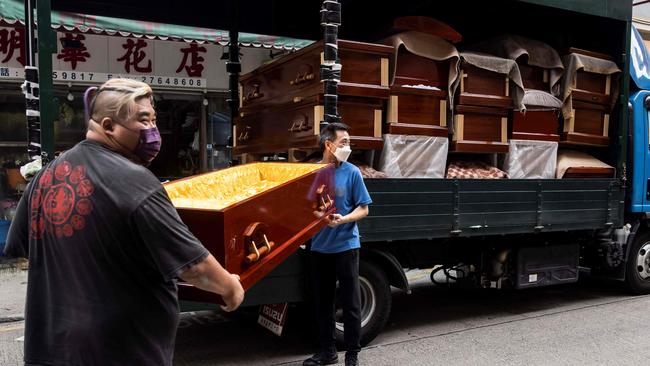
Health authorities in China have begun to make small changes to how Covid-19 is managed such as allowing those with mild symptoms to avoid being admitted to hospital.
Chinese epidemiologist Zhang Wenhong posted on social media this week that while Covid-zero was desirable now, a more “sustainable coping strategy” was needed eventually, reported the BBC.
“With this virus, alleviating fear is the first step we must take.
“Omicron has become so mild, in countries that have achieved widespread vaccination and natural infection rates, it may be less deadly than even the flu.”
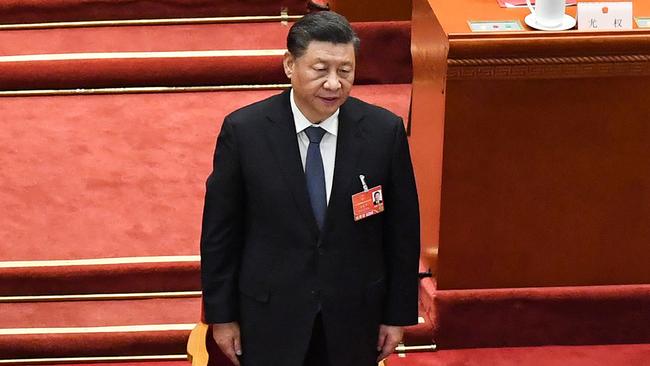
China keeping Covid zero – for now
That’s certainly not the view of all echelons of Chinese society.
The Global Times newspaper, which has strong links to the government, quoted the head of the country’s Covid-19 response expert panel Liang Wannian as saying the increased transmissibility of Omicron posed a large risk to health.
“Liang warned it is not the right time to abandon the existing policy of virus control and that doing so would make the achievements of the past two years useless,” stated the Global Times.
President Xi Jinping has also recently said “victory” over Covid-19 will come with “perseverance”.
But in Beijing all eyes will be on Hong Kong as it gradually begins to open up. What happens to a territory of 7.5 million could have a huge effect on a country of 1.4 billion.
More Coverage
Originally published as One of the few remaining Covid zero holdouts will begin to ease restrictions from April



